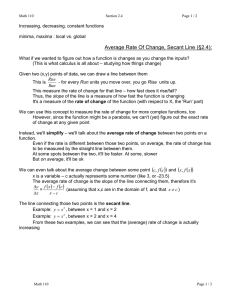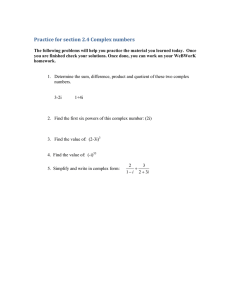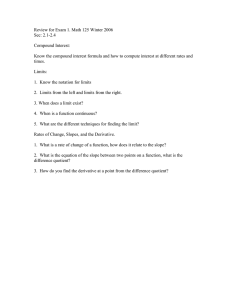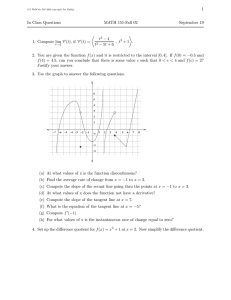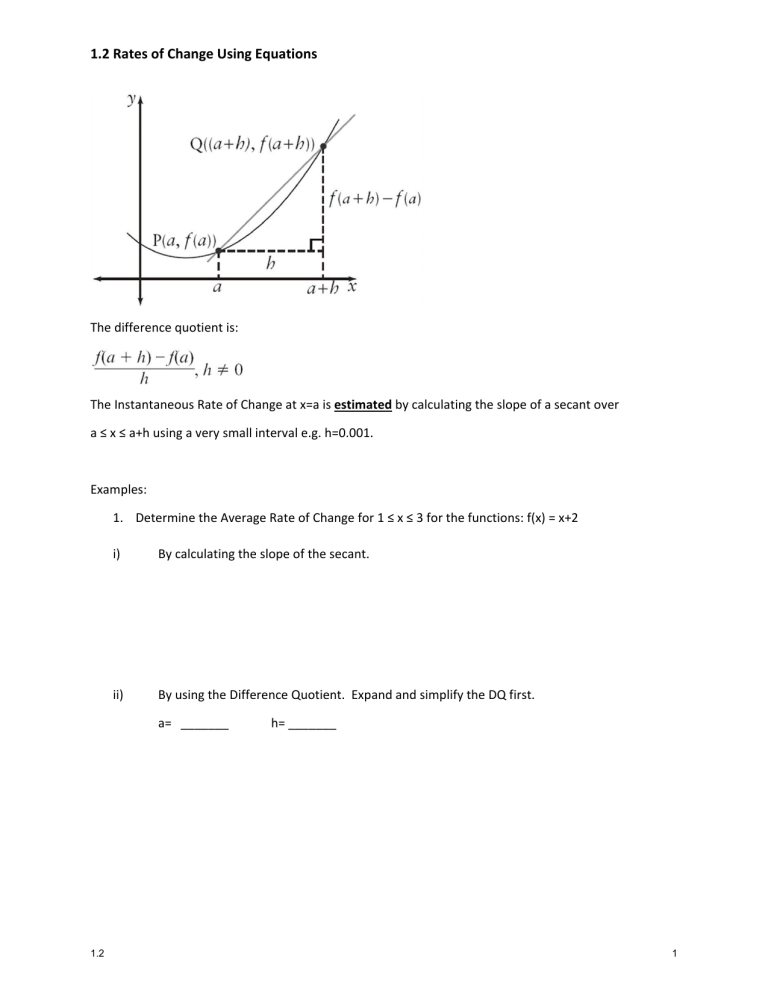
1.2 Rates of Change Using Equations The difference quotient is: The Instantaneous Rate of Change at x=a is estimated by calculating the slope of a secant over a ≤ x ≤ a+h using a very small interval e.g. h=0.001. Examples: 1. Determine the Average Rate of Change for 1 ≤ x ≤ 3 for the functions: f(x) = x+2 i) By calculating the slope of the secant. ii) By using the Difference Quotient. Expand and simplify the DQ first. a= _______ 1.2 h= _______ 1 2. Determine the Average Rate of Change for 1 ≤ x ≤ 3 for the functions: f(x) = 2x2 – 1 iii) By calculating the slope of the secant iv) By using the Difference Quotient. Expand and simplify the DQ first. a= _______ h= _______ 3. Estimate the slope of the tangent line at x = 1 for the functions: f(x) = 2x2 – 1 by first simplifying the difference quotient expression and then substituting h=0.1, h=0.01, and h=0.001 and evaluating. 1.2 HW p.20 #1bd, 2, 4, 6, 7, 8, 12i, iii, 13b,d 2
